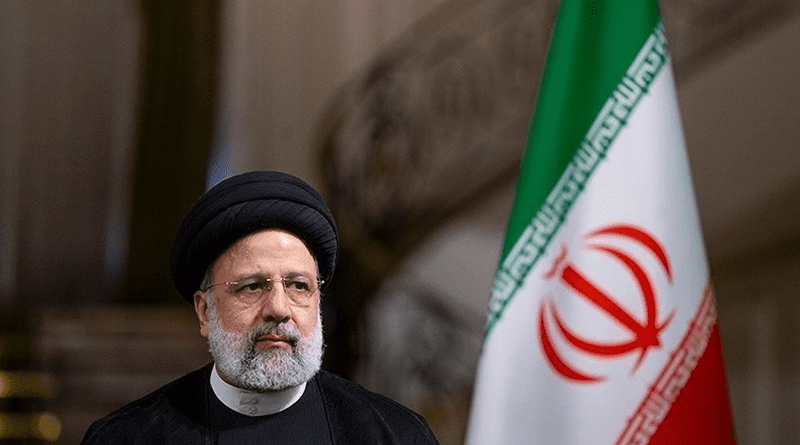Death Of Ibrahim Raisi Is A Strategic Blow To Iranian Regime – OpEd
Ibrahim Raisi death, following the crash of the helicopter carrying him and Amir Abdollahian, the regime’s foreign minister, in Azerbaijan province, deals a strategic blow to Khamenei’s policy of contraction and tight control over his government to continue oppression and terrorism.
Khamenei needed a puppet to ruthlessly suppress and massacre dissidents amidst deep societal dissatisfaction with his regime. Ibrahim Raisi, an active element in the regime’s judicial apparatus from the outset of the mullahs’ rise to power, was notorious for his involvement in the torture and execution of regime opponents. He gained infamy for his role in the mass execution of 30,000 political prisoners in the summer of 1988.
With only a sixth-grade education, Ibrahim Raisi was uneducated compared to figures like the Larijani brothers, one of whom headed the parliament and the other the judiciary, and one of the clergy members of the Guardian Council, appointed by Khamenei since 2001. He was not considered a politician or a skilled manager in a government department or ministry.
He was a preferred choice as he showed his loyalty and devotion to Khamenei over other criminal elements of the regime, and his absence leaves a strategic blow to Khamenei’s repressive apparatus. His death deals a strategic blow to the regime’s suppression policy, akin to the killing of Qasem Soleimani, which struck at the heart of the regime’s terrorism policy and is not easily compensable. All of Khamenei’s plans have turned to ashes.
With Ibrahim Raisi’s death, internal contradictions within the regime are intensified, and social dissatisfaction escalates. The enraged and determined people of Iran have found an opportunity and pretext to challenge the regime’s integrity. Iranians boldly and openly express joy and satisfaction at Raisi’s demise, demonstrating their anger and hatred towards the regime.
In contrast, Joe Biden, Joseph Borrell, the head of the European Union’s diplomacy apparatus, and others offered help in locating the helicopter carrying Raisi. They expressed condolences for the death of Raisi, the executioner.
Joseph Borrell wrote in Channel X “The European Union offers its condolences for the death of President of the Islamic Republic of Iran Ebrahim Raisi, Foreign Minister Hussein Amir Abdollahian and other Iranian officials involved in the tragic helicopter crash on Sunday”.
In this regard, the spokesperson for the MEK stated in a message: “Offering condolences and congratulations to the murderers and criminals for petty economic interests is shameful, insulting to the Iranian people, and stains the blood of the victims while encouraging the regime’s repression, especially against women, and its endorsement of execution and mass murder.”
Currently, the Iranian regime is in a new balance and chapter, with Khamenei having 50 days according to the regime’s constitution to replace Raisi. For now, the reins of power have been entrusted to Mohammad Mokhber, one of the key figures in crime and corruption within the regime.
During this period, in addition to the despair that has arisen within the regime, internal differences are also emerging, and Khamenei is torn between continuing his policy of repression and terrorism or deviating from it. Continuing repression and terrorism, as in the past, will undoubtedly be insisted upon by Khamenei, but in the current situation, it will not be an easy task for the regime.
Mr. Massoud Rajavi, the leader of the Iranian Resistance, described this situation in a message as follows: “The effects of the blow have shattered the confused, weak, and demoralized structure and its depleted forces. It shakes the pillars of the regime and echoes the final stage of the Shah’s era. Khamenei must, amidst the Gaza war, rebuild and replace the apparatus he had set up from top to bottom under a president who carried out the1988 massacre. The apparatus is now riddled with internal vulnerabilities.”

